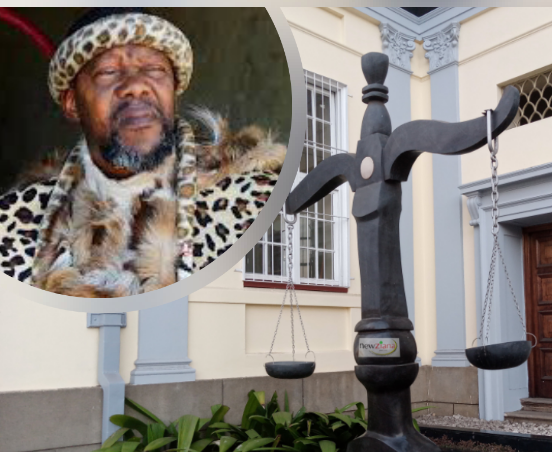Incarceration of Chief Ndiweni puts laws under spotlight
Share

Harare, (New Ziana) – The recent incarceration of Ntabazinduna chief, Felix Nhlanhlayamangwe Ndiweni has brought under the spotlight the interface between customary law and general law.
Chief Ndiweni, together with 23 of his subjects, was sentenced to 24 months in prison for malicious damage to property by Bulawayo provincial magistrate Gladmore Mushowe a fortnight ago.
Six months of his sentence, including those of his subjects, were suspended for five years on condition of good behaviour. His subjects had the remaining 18 months of their sentence suspended on condition they completed 525 hours of community service at different stations in Ntabazinduna.
The traditional leader and his subjects were found guilty of destroying one of his subjects, Fethi Mbele’s fence and burnt his kraal after he defied his order and took back his wife, whom the chief had banished from his area of jurisdiction for adultery.
Chief Ndiweni was jailed after the court noted that his moral blameworthiness was too high as he acted “in a barbaric manner for a modern society”, since he was a custodian of the law.
Cases of chiefs banishing people from their areas are common from time immemorial and many such victims would relocate to other territories where they would start a new life, which in many cases entailed being permanently separated from the rest of the clan.
Common crimes for which people would be banished included witchcraft, rape, adultery and defiling the religious ceremonial system.
It was, however, fortunate that in almost all the cases, the banished would find a compassionate chief who would offer them land to settle and start a new life.
Apparently these victims accepted their fate without any question and would not seek any legal recourse to stop execution of the verdicts.
It appears that ignorance of the procedures to follow to appeal against verdicts of chiefs and other traditional leaders was the major reason subjects accepted any punishment that was meted out and traditional leaders acted with impunity.
Unlike with general law and exogenous court processes, the operations and powers of chiefs were shrouded in fear with subjects treating the traditional leaders as the ultimate authority. Even the chiefs themselves sometimes overstepped their jurisdiction and they would try cases that were ordinarily for the common law courts.
In Zimbabwe, it was only after independence that the government restored the powers of chiefs which had been taken away by the colonial governments and made a distinction between cases which they can try and those that should be referred to the courts.
The Customary Law and Local Courts Acts assign judicial powers to traditional courts, with their jurisdiction limited to civil cases involving parties who reside within the area of the court’s authority, while the content of the case has to be suited to trial by customary law.
Thus, traditional courts do not have the power to adjudicate on cases of a criminal nature, such as murder or rape.
However, and flowing from tradition, in some cases traditional leaders do resolve disputes involving criminal matters of less serious natures such as theft and assault.
But serious cases of a criminal nature are referred to the police for investigation. Despite this position, chiefs believe that they have the power to solve criminal cases such as theft of livestock although this type of crime is a criminal offence inscribed in the Criminal Code.
It is this murky distinction in the laws that Chief Ndiweni failed to make, and ultimately fell victim to, which now political vultures are trying to exploit for mileage.
Movement for Democratic Change leader Nelson Chamisa, a lawyer and pastor, visited the chief at Khami prison shortly after his jailing, crying wolf. In lean times, every straw has potential benefits.
New Ziana









